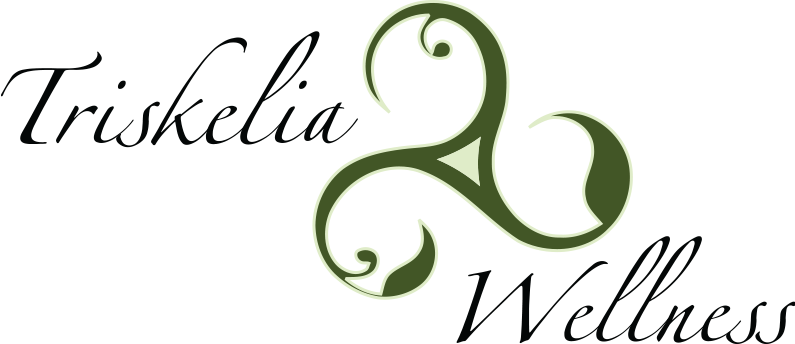 In the realm of modern medicine, shockwave therapy has emerged as a versatile and effective treatment option for various musculoskeletal conditions. Whether you’re an athlete recovering from a sports injury or someone seeking relief from chronic pain, understanding how shockwave therapy works and its range of applications can provide valuable insights into its potential benefits. In this comprehensive guide, we’ll delve into the mechanics of shockwave therapy, explore its therapeutic effects, and examine the diverse array of conditions it can effectively address.
In the realm of modern medicine, shockwave therapy has emerged as a versatile and effective treatment option for various musculoskeletal conditions. Whether you’re an athlete recovering from a sports injury or someone seeking relief from chronic pain, understanding how shockwave therapy works and its range of applications can provide valuable insights into its potential benefits. In this comprehensive guide, we’ll delve into the mechanics of shockwave therapy, explore its therapeutic effects, and examine the diverse array of conditions it can effectively address.
What is Shockwave Therapy?
Shockwave therapy, also known as extracorporeal shockwave therapy (ESWT), is a non-invasive medical procedure that utilizes high-energy acoustic waves to stimulate the body’s natural healing processes. Originally developed for the treatment of kidney stones, shockwave therapy has since been adapted for musculoskeletal conditions due to its ability to promote tissue regeneration, increase blood flow, and alleviate pain.
How Does Shockwave Therapy Work?
The mechanism of action behind shockwave therapy revolves around the principle of acoustic waves delivering mechanical energy to targeted tissues. These waves are generated by a device and transmitted through the skin to the affected area. Upon reaching the target tissue, the acoustic waves induce a cascade of biological responses that contribute to therapeutic effects:
Stimulation of Cellular Activity
Shockwaves trigger microtrauma at the cellular level, prompting the release of biochemical substances that initiate the healing process. This includes the production of growth factors, cytokines, and other signaling molecules involved in tissue repair.
Neovascularization
By promoting the formation of new blood vessels (neovascularization), shockwave therapy enhances blood circulation to the affected area. Improved blood flow delivers oxygen and nutrients essential for tissue regeneration while removing metabolic waste products, fostering a conducive environment for healing.
Pain Modulation
Shockwave therapy has analgesic properties, meaning it can alleviate pain by interfering with pain signaling pathways. This occurs through the suppression of nociceptive (pain) signals and the release of endorphins, the body’s natural pain-relieving chemicals.
Breakdown of Calcifications
In conditions characterized by the buildup of calcified deposits, such as tendinopathies or calcific shoulder tendonitis, shockwave therapy can disrupt these calcifications, facilitating their breakdown and subsequent resorption by the body.
Conditions Treated with Shockwave Therapy
Shockwave therapy has demonstrated efficacy in treating a wide range of musculoskeletal conditions, both acute and chronic. Here are some of the key conditions for which shockwave therapy may be recommended:
- Shoulder Rotator Cuff Tendinopathy: Shockwave therapy can help with shoulder rotator cuff tendinopathy by promoting tissue healing and reducing pain. It works by delivering acoustic waves to the affected area, stimulating blood flow, and encouraging the body’s natural healing response.
- Post-Knee Replacement Adhesions: Shockwave therapy can aid in addressing post-knee replacement adhesions by employing high-energy acoustic waves targeted at the affected area. This approach aims to activate the body’s natural healing responses and foster tissue regeneration, potentially mitigating discomfort and enhancing mobility following surgery.
- Plantar Fasciitis: This common cause of heel pain involves inflammation of the plantar fascia, a thick band of tissue on the bottom of the foot. Shockwave therapy can help alleviate pain and promote healing by stimulating tissue repair and reducing inflammation.
- Tennis Elbow (Lateral Epicondylitis): Characterized by pain and tenderness on the outer side of the elbow, tennis elbow is often due to overuse or repetitive strain. Shockwave therapy targets the affected tendon, promoting healing and improving function.
- Golfer’s Elbow (Medial Epicondylitis): Similar to tennis elbow but affecting the inner side of the elbow, golfer’s elbow responds well to shockwave therapy, which can accelerate the healing process and alleviate symptoms.
- Achilles Tendinopathy: The Achilles tendon, located at the back of the ankle, is susceptible to injury and degeneration. Shockwave therapy can stimulate tissue regeneration in the affected tendon, promoting recovery and reducing pain.
- Frozen Shoulder (Adhesive Capsulitis): Characterized by stiffness and pain in the shoulder joint, frozen shoulder can significantly impair mobility and function. Shockwave therapy helps to break down adhesions and improve range of motion.
- Hip Bursitis: Inflammation of the bursae (fluid-filled sacs) around the hip joint can cause pain and limitation of movement. Shockwave therapy can help reduce inflammation and promote healing of the affected tissues.
- Patellar Tendinopathy (Jumper’s Knee): Common among athletes involved in jumping sports, patellar tendinopathy refers to pain and inflammation in the patellar tendon. Shockwave therapy can aid in tissue repair and relieve symptoms.
- Calcific Tendonitis: When calcium deposits accumulate in tendons, it can lead to pain and restricted movement. Shockwave therapy can break down these calcifications, facilitating their removal and improving function.
Consulting with a Qualified
Shockwave Therapy Provider
Shockwave therapy represents a cutting-edge approach to pain management and tissue repair, offering patients a safe and effective alternative to traditional treatments. At Triskelia Wellness in Derry, New Hampshire, our skilled practitioners are committed to helping you achieve optimal health and wellness through personalized care and innovative therapies like shockwave therapy. Whether you’re recovering from an injury, managing a chronic condition, or seeking to enhance your performance, we’re here to support you on your journey to better health. Schedule a consultation today to learn more about how shockwave therapy can benefit you.
